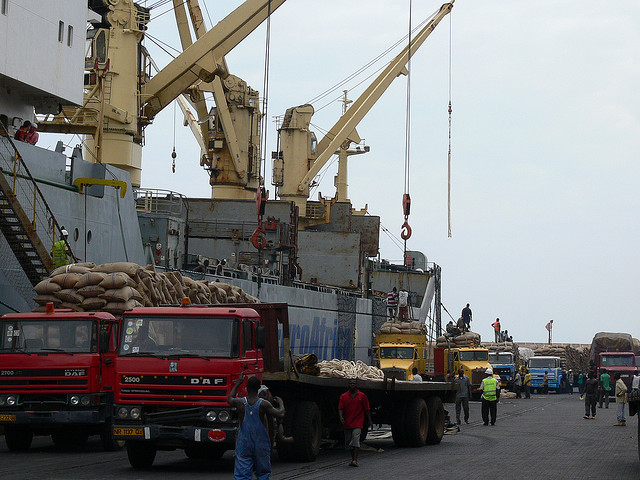Stakeholders in the maritime and organised private sectors have lambasted the Nigeria Customs Service (NCS) and the Central Bank of Nigeria (CBN) for the unprecedented astronomical increase in import duty, arguing that the development is detrimental to the masses.
SHIPS & PORTS reported on Saturday that the NCS and CBN have stylishly raised the import duty on all goods by about 48.5% this year by jerking up the dollar assessment rate of imported items from N951.842 per dollar as at December 2023 to N1,413.62.
This means Nigerians will pay more to clear their goods at the port as import duty is benchmarked against the dollar.
With the recent increase, customs duty on imported goods has effectively tripled within the seven months of the Bola Ahmed Tinubu government.
The new rate has since been reflected on the Customs trade portal.
The increase has vehemently opposed by members of the organised private sector, importers, customs brokers and others.
Speaking with SHIPS & PORTS, the National President, Association of Association of Nigerian Licensed Customs Agents (ANLCA), Emenike Nwokoeji, said the increase is fuelling inflation.
“That means more economic challenges for the poor masses who have been contending with the ever-increasing cost of PMS, endure bad road infrastructure, rising cost of foodstuffs, insecurity, hopelessness amidst the so-called renewed hope, which has long gone awry.
“What they are doing now is a gamble. They do not know the solution. Let the government block all the loopholes through which free money get into people’s hand. Everyone in government has access to public fund and since it is mostly acquired illegally, they cannot deposit it in banks so, they convert it to foreign exchange. The solution is to stop corruption. If foreign currency is used basically for foreign trade, we won’t be where we are today,” he said.
Also speaking, the National President, National Council of Managing Directors of Licensed Customs Agents (NCMDLCA), Lucky Amiwero, blamed the CBN for the rise in customs duty.
He said the inability of the apex bank to reign in the decline of the naira, leaves the Nigeria Customs Service with no other option but effect the prevailing exchange rate in calculating import duties.
“The CBN controls the exchange rate and once there is an increase in the exchange rate, the customs must reflect it in their server. When this government came in, they adopted a floating exchange rate, which is not beneficial to a country that has no backup, couple with the hike in prices of fuel and diesel, it has tripled the whole system.
“There is a gradual inflow of poverty into the economy. A lot of people are moving down the poverty line because every increase in exchange rate affects everything in the market. This is because most of the commodities in the market have foreign input. The foreign input triggers the exchange rate and this shows that there is a problem in the country.
“A trade transaction should be predictable, consistent, transparency and this policy lacks these three qualities. It is detrimental to the common man. People cannot access money anymore. The take home pay has been affected by the transport rate. We also do not have backups. The subsidy, which the common man relies on has also been removed. Nothing is moving according to plan,” he lamented.
The Chief Executive Officer, Centre for the Promotion of Private Enterprise (CPPE), Muda Yusuf said the astronomical increase of the exchange rate for the computation of import duty is a double jeopardy for investors across all sectors especially those in the real sector because it will further fuel inflation as production and operating costs escalate.
“It is even more troubling that the rate increase takes immediate effect. This is a policy action that is difficult to justify, especially in the light of the multiple headwinds that businesses are grappling with,” he said.
He therefore appealed to the CBN to reverse the rate hike in the interest of the already impoverished segments of the society and the numerous businesses that are already on the verge of collapse.
He also recommended that the determination of the exchange rate for import duty computation should be treated as a fiscal policy matter and located within the remit of the fiscal authorities.
“This is necessary for proper alignment with extant fiscal policies,” he added.
